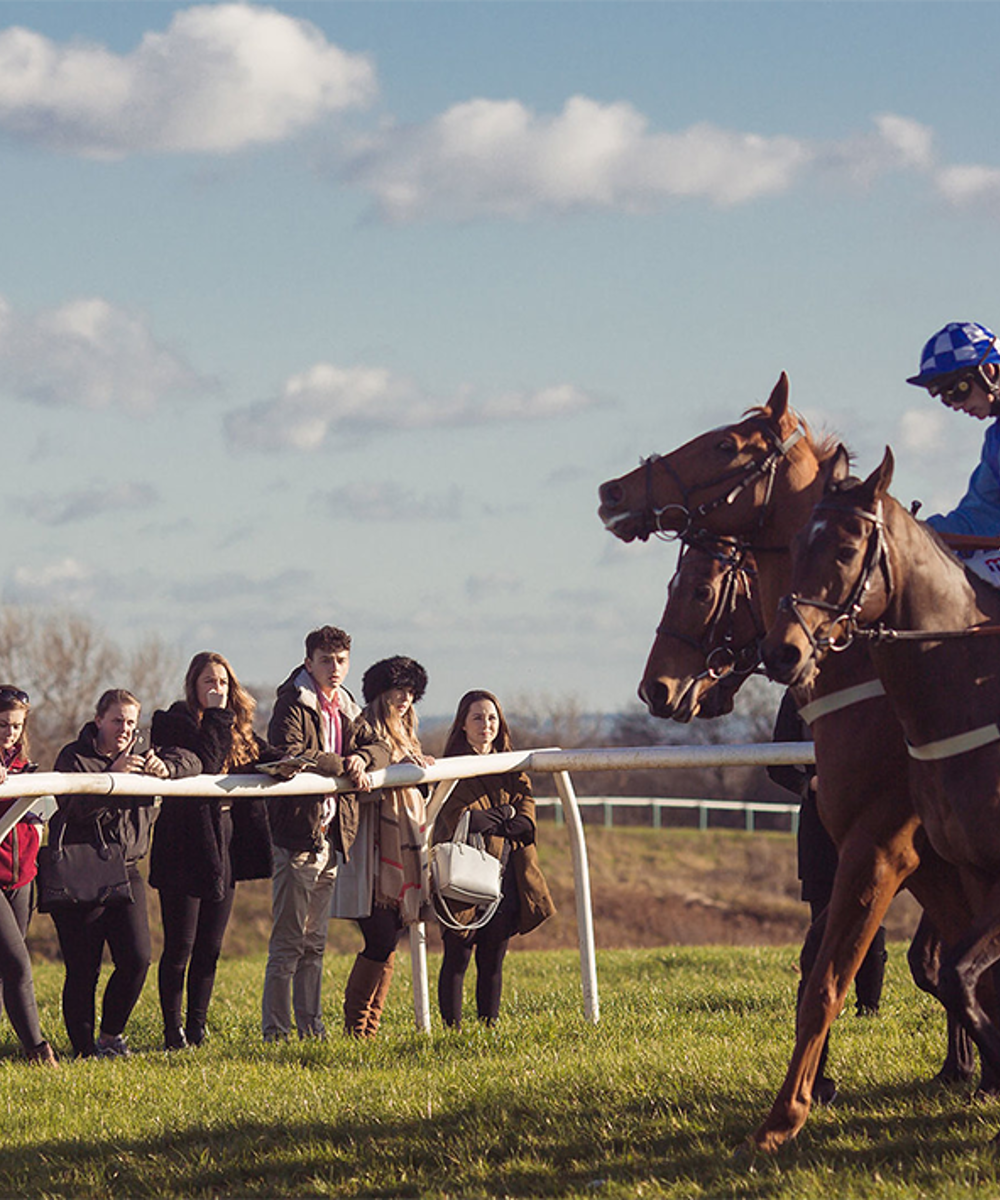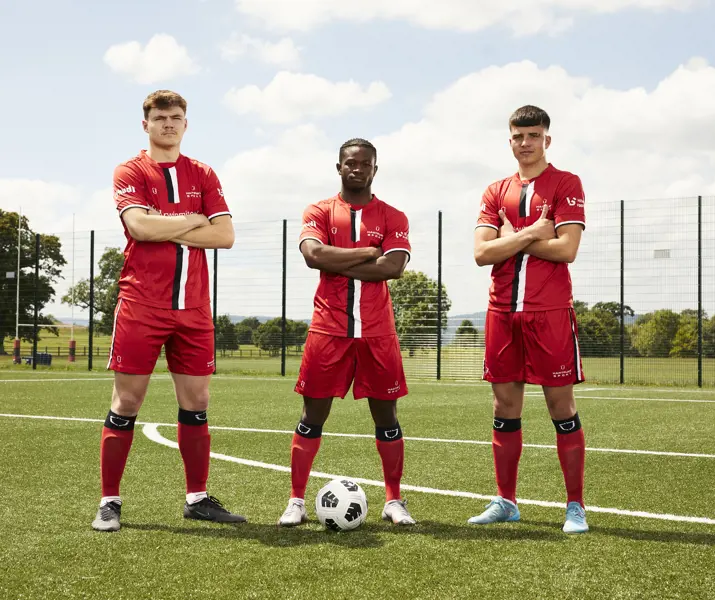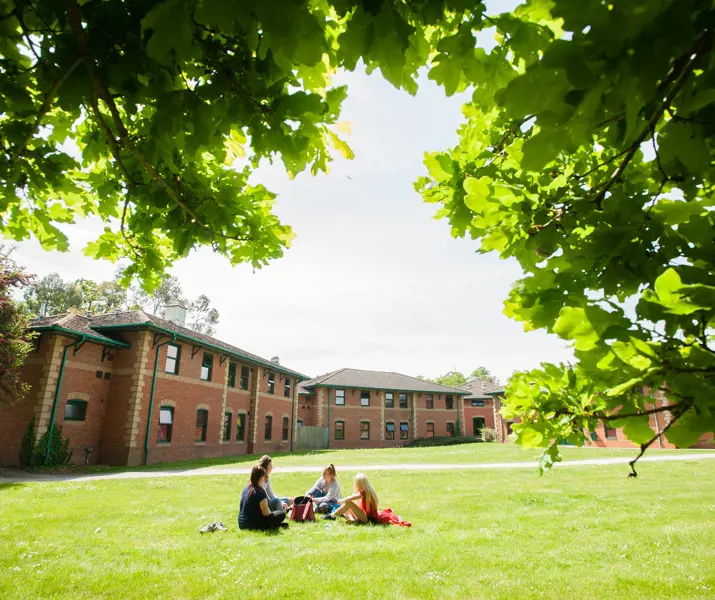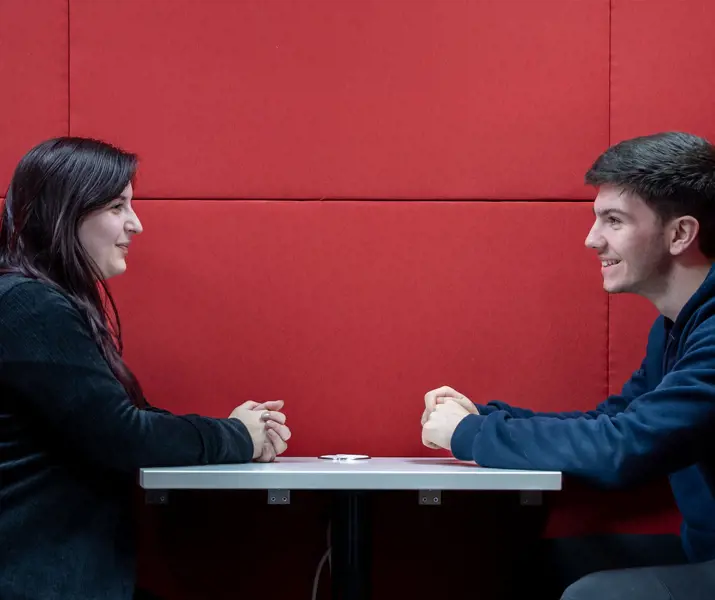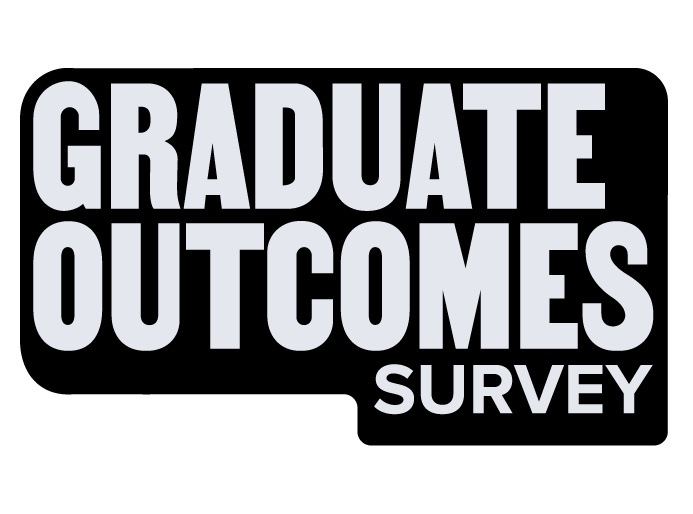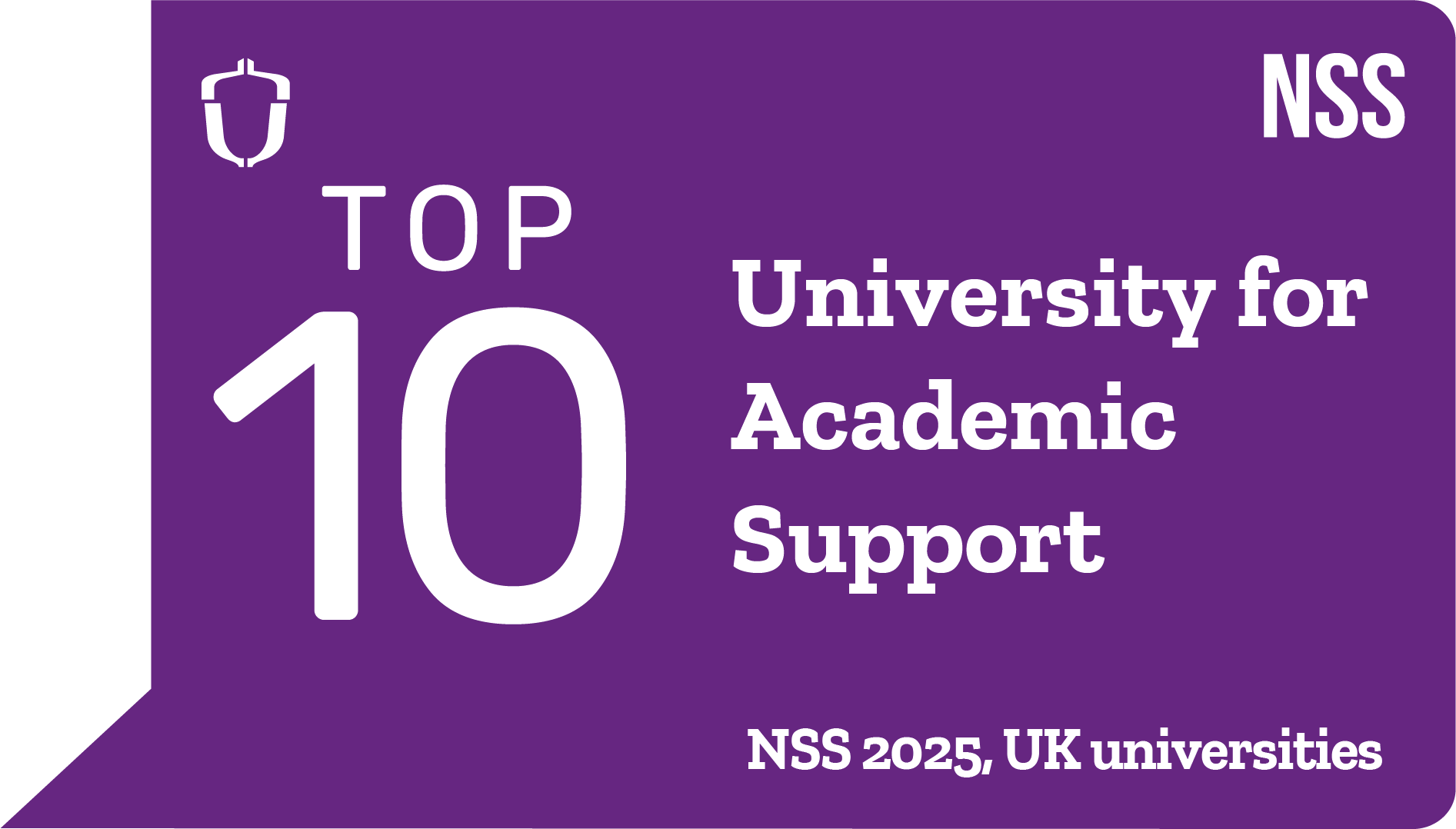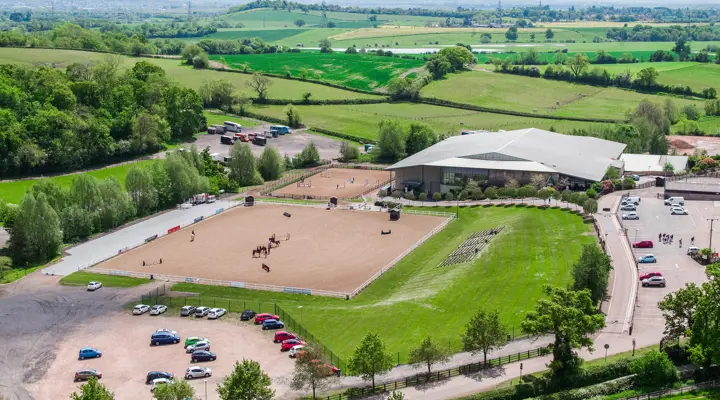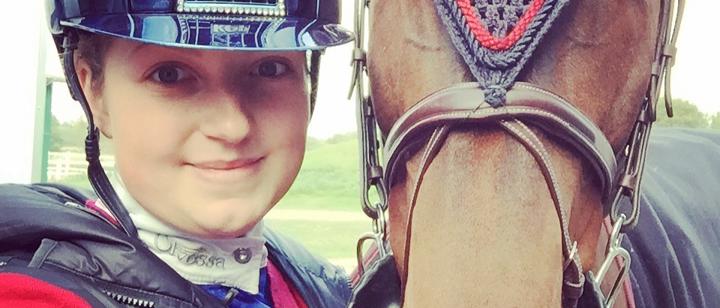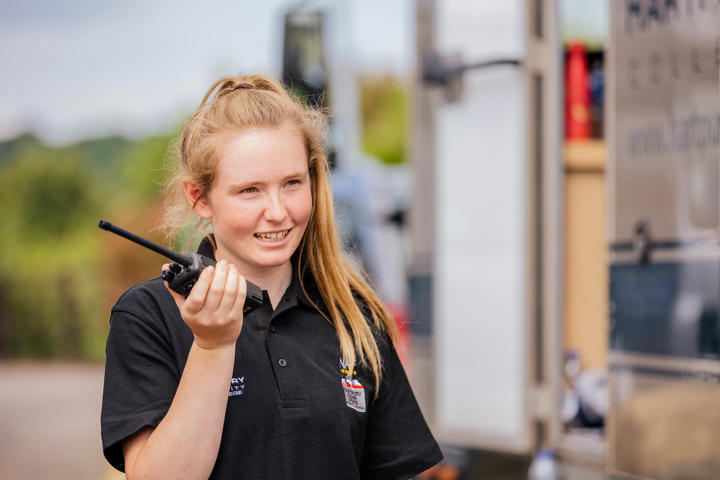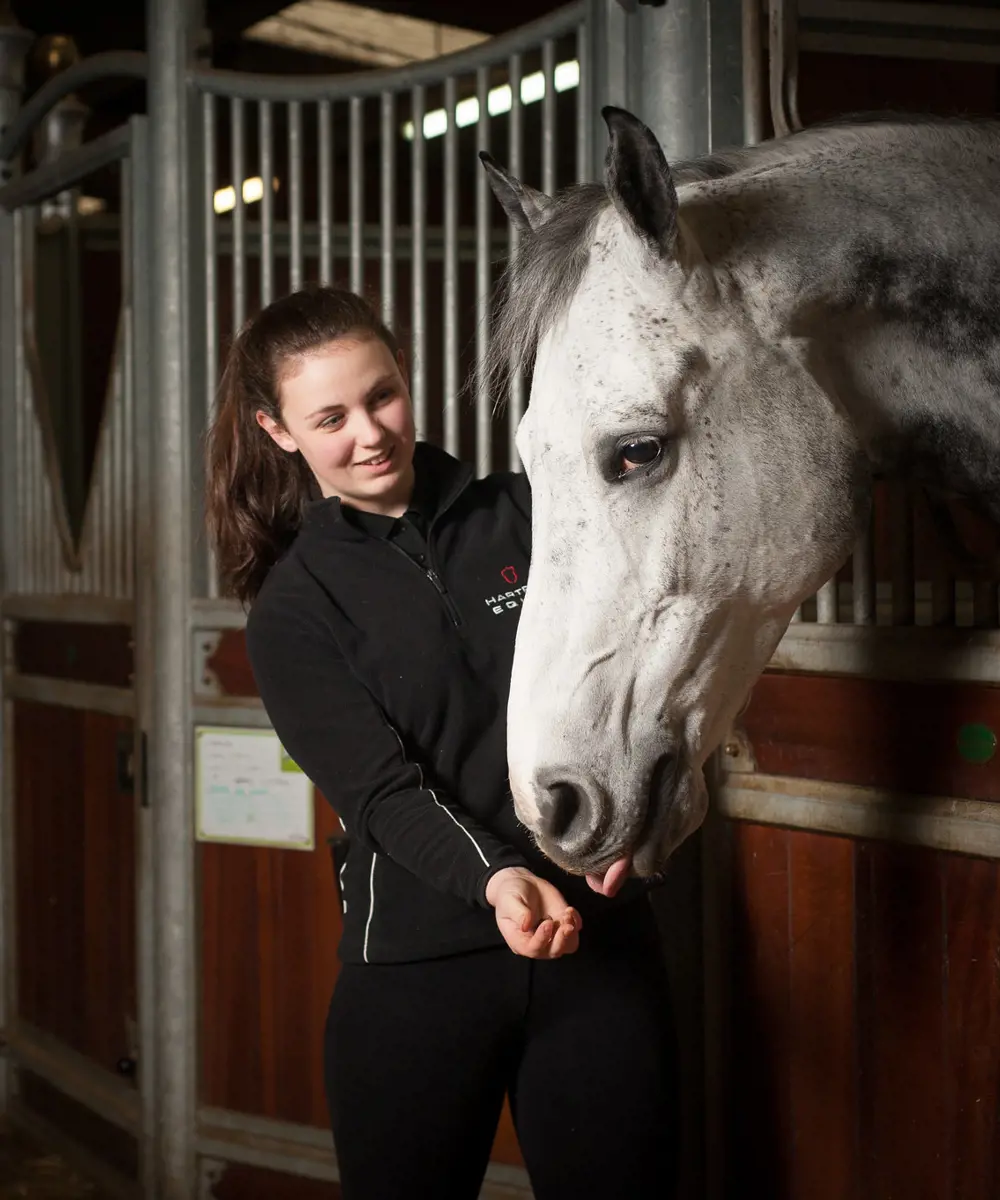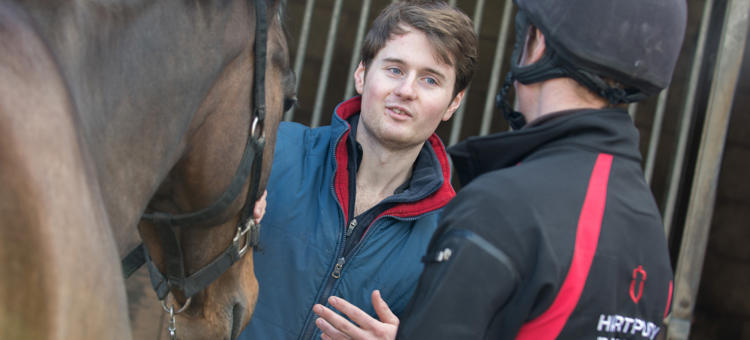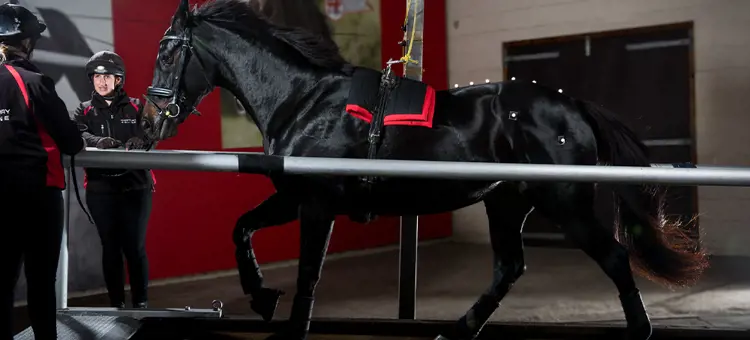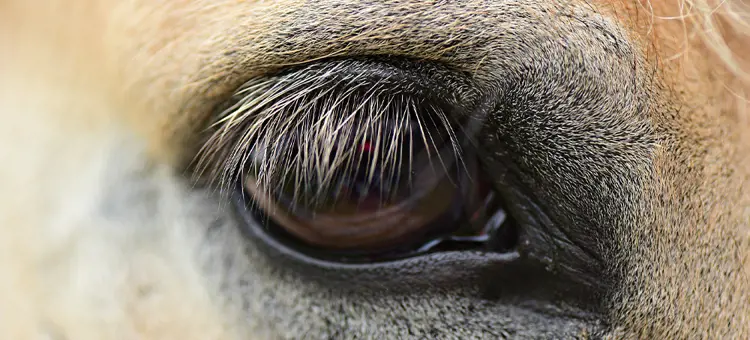This science degree is unique due to its consideration of business elements which enable graduates to understand the complexity of the global racing and bloodstock industries, which is beneficial whether working in racing or the wider equestrian sector. In addition to core modules relating to applied anatomy, physiology and practical competencies, students have the option to study nutrition, behaviour, biomechanics, sports medicine and more.
Throughout your degree, you'll learn how to achieve optimal racehorse performance including returning the thoroughbred to peak condition following an injury.
Our county of Gloucestershire is renowned for horseracing, with leading trainers and facilities on site and nearby.
You’ll benefit from our strong links with racing professionals as well as our research-active commercial Equine Therapy Centre on campus, which rehabilitates racehorses, and other equine athletes, back to competition.
The skills and industry connections you develop will help you take advantage of global opportunities that exist in an innovative, fast-paced industry.
You'll graduate with a strong awareness of the racing industry, combined with the ability to apply scientific principles to training practices, analyse performance and understand the rehabilitation process of the racehorse.
UCAS tariff points | 32-48 UCAS tariff points.
A Levels | EE-DD or equivalent from at least one full A Level.
Vocational Awards | PPP in an Extended Diploma.
Access | 32-48 UCAS tariff points in an Access to Higher Education Diploma.
International Baccalaureate | 32-48 UCAS tariff points in an IB Diploma, to include one Higher at H3 or above.
Scottish Highers | 32-48 UCAS tariff points from at least one Higher. You must have completed two years study at Higher Level.
Irish Leaving Certificate | 32-48 UCAS tariff points from at least one Higher.
T Level | An overall grade of Pass.
Additional Information
In addition to the above, we require a minimum of five GCSEs at grade 9-4 (A*-C), to include English and Maths. We will consider equivalencies including but not limited to functional skills level 2, Irish Ordinary level, National 5s, IB standard level.
We will consider combinations of level three qualifications.
We welcome applications from individuals with equivalent, non-UK qualifications and mature students (over 21). We may interview as part of the application process.
Email us
Your support network
You'll benefit from a strong support network from day one to be the best you can be. This will range from your personal tutor and specialist academic support team (our Achievement and Success Centre) to dedicated wellbeing and employability (Innovation, Careers and Enterprise) centres.
Academic support
You’ll have your own personal tutor while you’re here who will support you to succeed in your studies. You’ll also have access to our academic and wellbeing support teams who run regular workshops and one-to-one sessions on campus and online.
Alongside this, we have a comprehensive bank of online study skills resources to help you make the most of your qualification.
Your learning experiences
You'll experience a range of teaching methods to strengthen your digestion of topics, including lectures, workshops and practical sessions, as well as supported work placement learning as part of many courses.
Your career
Each year of your course will be made up of two semesters, within which you’ll study compulsory and optional modules on different industry-focused topics, enabling you to develop your own unique portfolio of knowledge, skills and experience, ready for your career. The course is taught in English.

